Cairns mayoral candidate Paul Taylor defends campaign donations as rival vows to call out any future conflicts of interest
A Cairns mayoral candidate could be unable to vote on key issues, including crime in the city and major CBD developments, if elected on Saturday. But the contender has defended his capacity to lead and deliver.
Cairns
Don't miss out on the headlines from Cairns. Followed categories will be added to My News.
A Cairns mayoral candidate could be unable to vote on key issues, including crime in the city and major CBD developments, if elected on Saturday after accepting tens of thousands of dollars in donations from businesses based in the heart of town.
But the contender says any potential conflict of interest concerns won’t hurt his capacity to lead and deliver “economic prosperity and the best financial future of Cairns”.
Queensland Police’s former Deputy Commissioner Paul Taylor has amassed an impressive campaign war chest, receiving almost $57,000 in declared donations since November.
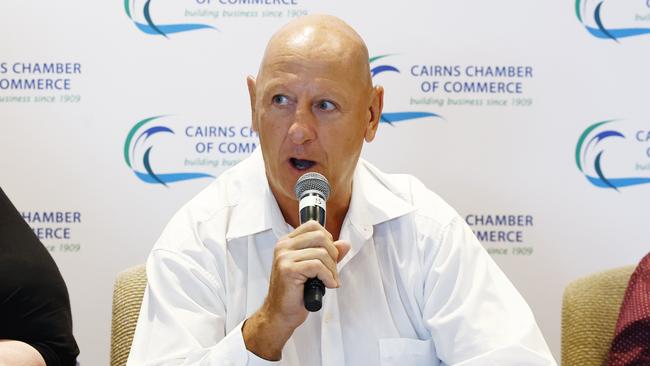
A large consortium of city-based businesses have backed the independent, including Villa Romana’s George Papagelou, Art Work Spaces, Woolshed nightclub and Gilligan’s general manager Anthony Brooks.
Mr Brooks is also Mr Taylor’s step-daughter’s partner.
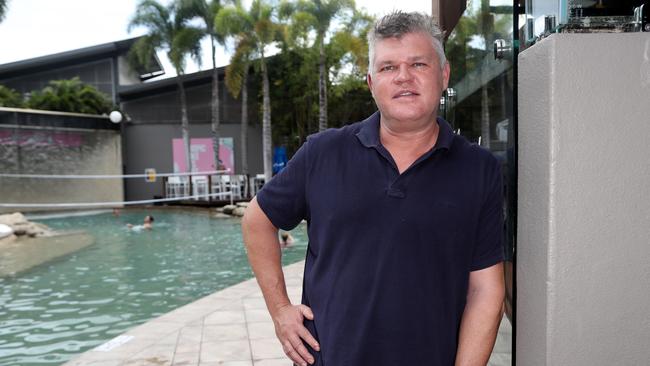
But the cash splash could hinder the mayoral aspirant’s ability to have a say on hot topics in the city with all elected officials legally bound to declare conflicts of interest under the Local Government Act (2009) before voting at meetings.
Division One councillor, Brett Moller, whose seat at the table is assured after no challengers emerged in his electorate, said the donations could backfire on his political rival.
“Between $500 and $2000 is a declarable conflict which means your fellow councillors must vote and decide if you can stay in the room (when voting at meetings),” Mr Moller said.
“Over $2000 is a prescribed conflict of interest and you must leave (without voting).”
Once a prescribed conflict is declared, councillors and mayors are prohibited from participating in discussions, voting, or making decisions about relevant matters during council and committee meetings.
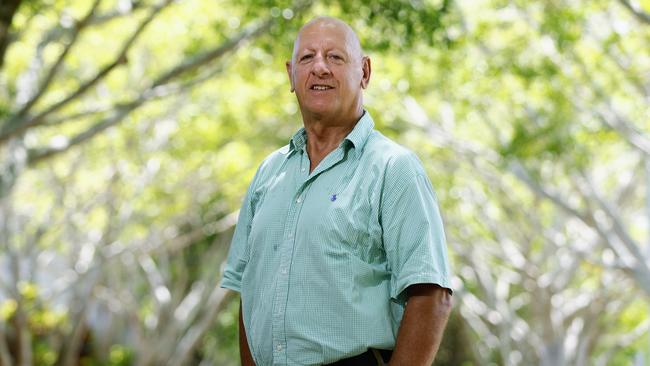
Running as an independent mayor without a team of candidates meant greater funding was required to win the top job, Mr Taylor said.
“Candidates running with a team of councillors are allowed to pool their donations to effectively promote their campaign,” he said.
“As an independent, I must raise sufficient support individually to create the same impact across the local government area.
“My intention is for a Taylor-led council to be transparent and open with councillors and the public about all finances, as we have been thus far in the process.”
Asked to give examples of recent council initiatives Mr Taylor couldn’t have voted on due to conflicts of interest, Mr Moller cited the $28m Esplanade dining precinct redevelopment and the $18m Shield Street upgrade as projects where the would-be mayor wouldn’t have had a vote.
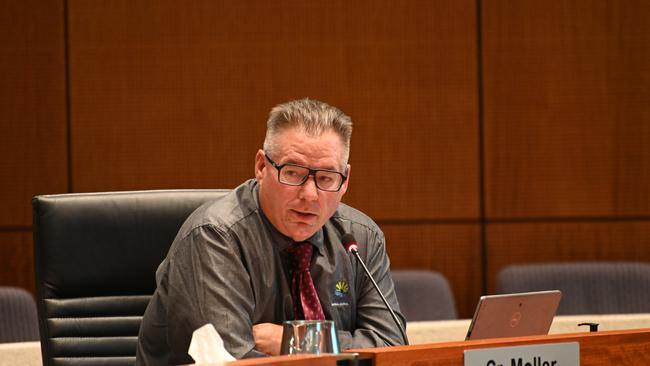
Should Mr Taylor win, the Unity Team member vowed to hold the independent candidate to the sword, citing the Code of Conduct for Councillors in Queensland.
“Each of the councillors has an obligation (under the code) and a duty under the legislation to raise a conflict if it hasn’t been disclosed by another councillor,” Mr Moller said.
“That is set in stone. There’s nothing wrong with a conflict of interest. It’s how you manage it. You’re raising your risk profile … and you have to follow the legislation.
“It’s an added responsibility and risk if you decide to take those donations.”
Under the code, elected representatives must “declare a conflict of interest or appropriately deal with a prescribed conflict of interest or a declarable conflict of interest in a meeting”.
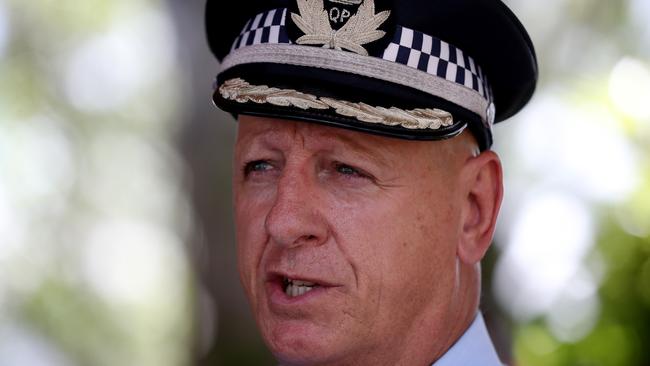
This year, the Electoral Commission of Queensland introduced spending caps for councillors and mayors based on the number of voters within the council.
The cap, which is $116,540 for Cairns mayoral candidates, meant richer contestants can’t just outspend their opponents, Research Fellow at the Centre for Governance and Public Policy at Griffith University, Dr Pandanus Petter said.
“On the flip side, it doesn’t make it easier for some candidates to run if they don’t already have the resources,” Dr Petter said.
“The incumbent typically has a bigger profile and they can point to their past achievements.”
Political donations from property developers and industry groups that represent developers were banned following the 2016 local government elections.
It is illegal to make or accept such donations.
At deadline, none of the other six Cairns mayoral candidates had declared any donations on the ECQ’s website.
Taylor’s Top Ten
Cairns mayoral candidate Paul Taylor’s biggest donors
1. Chris Leigh Lemke –$10,000
2. Geoff Olholm – $5000
3. Woolshed Holdings – $5000
4. Anthony Brooks – $5000
5. Dave and Madeene Wright – $5000
6. Dave Wright – $5000
7. Art Work Spaces – $4800
8. Adams Wholesale – $3000
9. Sanreef Pty Ltd – $3000
10. George Papagelou – $2000
Editor’s note:
Cairns’ Unity team candidates, including its mayor, Terry James, are all self-funded. Dwarfed by Mr Taylor’s electoral treasures are council teams Community First and Team Eden who’ve raised $19,901 and $8,540 respectively. Community First’s mayoral candidate is Denis Walls and Team Eden’s top contender is Amy Eden. The donations are split amongst councillors and mayoral candidates within teams.
More Coverage
Originally published as Cairns mayoral candidate Paul Taylor defends campaign donations as rival vows to call out any future conflicts of interest




